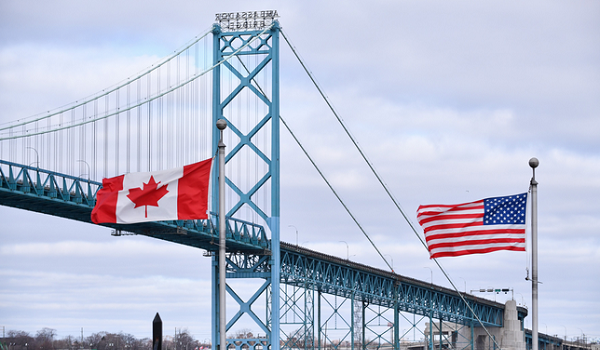Entrepreneurs in Beijing report cases of harassment they face
When the state-run newspaper China Daily marked the death late last month of drinks magnate Zong Qinghou, the paper noted the billionaire’s rags-to-riches story echoed that of the country itself: Mr. Zong built his fortune in the 1980s and 1990s, during a period of reform and opening in which China enjoyed explosive economic growth and opened its markets to the world.
Many of those mourning Mr. Zong framed him as both a symbol of China’s success and a model entrepreneur in a still officially communist country. But for others, his death highlighted how difficult it would be for anyone to match his achievements today, with a faltering economy and a state that appears – under President Xi Jinping – to have turned against private businesses.
“If the private sector does not recover, China’s national economy will collapse,” said Sun Jinliang, a Chinese entrepreneur who is seeking asylum in Canada.
Mr. Sun is one of the founders of the Society of the Alliance of the Guard of the Rights and Interests of Chinese Private Entrepreneurs, a newly formed, Canada-based organization that seeks to speak up for business people in China and those forced out of the country by crackdowns, local corruption and government harassment.
In interviews with The Globe and Mail, founders said they wanted to bring legal cases against Chinese officials and administrative bodies to the international Human Rights Court. They also plan to lobby for international Magnitsky sanctions, which are used by a number of countries including Canada to target foreign government officials accused of human-rights abuses or complicity in significant corruption.
“On a small scale, we aim to seek justice for individuals, but on a larger scale, we want to promote the process of democracy and human rights in China,” said co-founder Louis Huang, a Vancouver-based human-rights activist.
Mr. Sun built a successful real estate investment company in his native Jiangxi province, but said he ran into trouble with local officials, who accused him and his brother, Sun Bocheng, of ties to organized crime. At the time, the brothers were living in Hong Kong with their families.
In May, 2020, police in Jiangxi launched a major crackdown, arresting more than 70 people. According to Mr. Sun, around 10 of his family members, including his sister, another brother and their spouses were arrested. His siblings were later jailed for between three and five years, he said.
Weeks later, China issued an Interpol red notice for Sun Bocheng, and he was subsequently arrested in Croatia. Mr. Sun spent years fighting extradition in a case that eventually went to the Croatian Supreme Court, which in February, 2022, ordered his release. In its judgment, the court said the Chinese authorities had provided insufficient evidence against Mr. Sun “even though additional documentation was requested.”
Along with Russia, China has long been accused of abusing Interpol’s alerts system to target political dissidents overseas, and activists in many countries have called for the cancellation of extradition agreements with Beijing. In October, 2022, the European Court of Human Rights blocked Poland from extraditing Chinese national Liu Hung Tao, who had been detained on a red notice, on human-rights grounds, in a judgment that could affect China extradition cases in all 46 member states of the court.
Laura Harth, campaign director at Safeguard Defenders, a Europe-based rights organization, said it was “well established by now that extraditing an individual to China would expose them to a serious risk of torture or other inhuman and degrading treatment.”
She said while some fugitives sought by China are undoubtedly criminals, it was up to Beijing “to bring its system in line with the minimum international standards if it wishes countries to be able to assist in this type of judicial co-operation, not the other way around.”
“It is the very opacity and politicization of its judicial system by the Chinese authorities that makes it nearly impossible to make an independent assessment on the facts from outside,” Ms. Harth added.
Sun Jinliang said the accusations against him and his family were “unfounded.” He believes the Jiangxi authorities were seeking to seize his assets by accusing him of triad ties, and said he was not alone in being targeted in such a fashion.
Mike Gao, a New York-based immigration lawyer who is acting as counsel for the society, said he had seen an increasing number of cases involving Chinese business people accused of having links to organized crime. If convicted, these people could face the death penalty, and few lawyers in China are willing to take up such serious cases, he said.
Like Mr. Sun, Mr. Gao believed the real incentive for the local authorities bringing such prosecutions “is to take away the assets of these entrepreneurs.”
As a result of a national economic downturn and massive spending at the height of the COVID-19 pandemic, many local governments in China are heavily in debt and struggling to pay for basic services.
Last month, the local government in Shuicheng, in China’s southern Guizhou province, faced a massive backlash online after news emerged of the arrest of entrepreneur Ma Yijiayi, who had attempted to recoup tens of millions of dollars owed to her for a series of construction contracts.
Ms. Ma was accused of “picking quarrels and provoking trouble,” a catch-all offence that even China’s top court admits is “excessively used” at local levels.
“Is this an effort to use criminal punishments to resolve debt?” asked one social-media account affiliated with the state-run China News Service. “The authorities must provide a more detailed explanation.”
The Guizhou government has promised to do so, saying it will “hold sternly accountable any behaviour that infringes upon the legitimate interests of private entrepreneurs,” according to The Wall Street Journal.
The controversy arose as China’s leaders prepared to meet in Beijing this week for an annual session of the country’s rubber-stamp parliament at which the state of the economy was to take top billing. Factory activity slowed for the fifth consecutive month in February, according to data released March 1, and the country’s stock markets have also struggled amid a property slump and widespread lack of confidence.
Writing on social media, influential Chinese commentator Hu Xijin said authorities across the country must “invigorate the economy, do everything to raise ordinary people’s incomes, and at the same time, ease the government’s tight finances.”
Li Jianfeng, a former judge in China who now lives in Vancouver, said he had noted incidents of persecution experienced by Chinese entrepreneurs, including the heads of listed companies. As a former judge in the Economic Department of Ningde Municipal Intermediate People’s Court, Fujian Province, Mr. Li said there were many ways for local governments to go after entrepreneurs.
If private businesses strictly adhere to tax laws and regulations, many of them would struggle to operate, he said, forcing them to engage in dubious or outright illegal activities, making it easy to prosecute owners should they fall out of favour with local officials.
Mr. Sun said he was in touch with many other Chinese business people living overseas who all “made a huge contribution to China’s economy.”
“In past decades, we were afraid of the government; we were threatened, we compromised, and we tolerated, but what was the result?” he said.
“I believe that more entrepreneurs living overseas will respond to this call to come forward and reveal the truth.”
This article was first reported by The Globe and Mail












